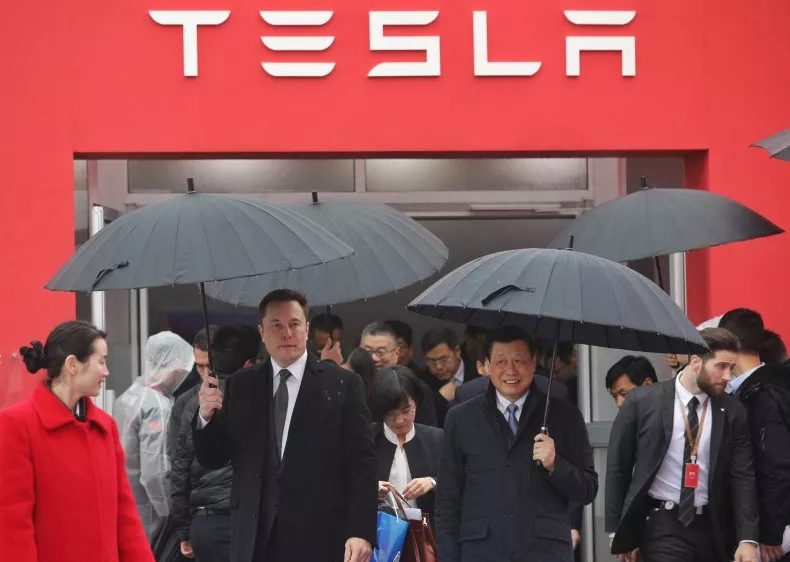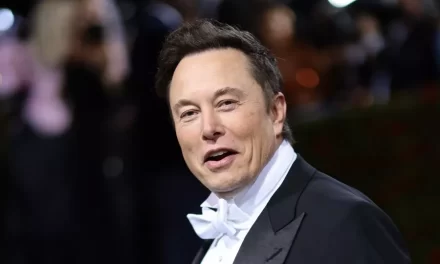By Jianli Yang
As a result of SpaceX CEO Elon Musk‘s recent foreign policy advice, Hu Xijin, China’s top propagandist and the former editor-in-chief of Chinese state media outlet Global Times, declared that Musk “will be taught a lesson.” That veiled threat should concern U.S. defense leaders far more than it should worry Musk himself.
The SpaceX and Tesla CEO has significant ties to China, the second (and, by Musk’s estimation, soon-to-be top) market for Tesla’s electric vehicle sales. He has taken over $1 billion in loans from the country and meets with Chinese Communist Party leadership. He even contributed a piece to China Cyberspace, the official publication of the Cyberspace Administration of China, which is the government’s cyber censorship arm. Legislators and security experts have cautioned the public that his relationship with the CCP could cause significant concern for America’s national security, and that time could very well be now.
This may explain Musk’s sharp disparity in treatment of requests from the Chinese and U.S. governments. For example, when China told Tesla to make a change to their cars, the company quickly complied, despite its reluctance to do so in similar scenarios in the U.S. And when California shut down a Tesla factory, Musk labeled them tyrants and refused; however, when China shut down a Tesla factory, Musk complied.
Because Tesla shares SpaceX technology with China, Musk is especially vulnerable to Civil-Military Fusion and general Chinese espionage. China has been rather vocal about its goal of beating the U.S. in space, the warfighting domain of the future, so it can ultimately defeat it on land. Obtaining classified information and other proprietary national security information from SpaceX would help facilitate China’s goal.
What could Hu Xijin’s recent threat of teaching Musk a lesson mean for Musk and America’s national security more generally? What has Musk’s presence in China caused the country to learn about U.S. space operations and Musk’s technology, which is critical to its functionality? Could the CCP take his technology and use it for China’s own space interests? Is it already prepared to do so? It is long past time for the U.S. to find answers to these questions.
Rep. Chris Stewart (R-Utah), who sits on the House’s Counterterrorism subcommittee, has already declared his desire to conduct confidential briefings on Capitol Hill to get answers to these questions as they pertain to Musk. However, this problem is far from exclusive to the billionaire; it concerns the entire defense industry. As such, Congress should address it as a broad national security priority.
Some members of Congress already appear to understand as much. For example, Sen. Marco Rubio (R-Fla.) introduced the Space Protection of American Command and Enterprise (SPACE) Act to limit the CCP’s potential to access sensitive matters to U.S. national security. The bill requires “that no funds under the U.S. Department of Commerce or National Aeronautics and Space Administration (NASA) may be used to purchase or lease telecommunications or aerospace hardware/software and/or services from any telecommunications or aerospace corporations, subsidiaries, or affiliates with links to the Chinese Communist Party.” This bill would ensure that the government can continue utilizing important contractors like SpaceX so long as they are willing to make operational changes that protect the U.S.’s national security interests. Previously, former Senator Cory Gardner (R-CO) offered similar legislative language in the form of National Defense Authorization Agreement amendments, which would have had the Government Accountability Office review NASA contractors for potentially problematic China ties while mandating NASA take the Office’s assessments into account when making contracting decisions.
It does not matter which solution Congress ultimately agrees to so long as it takes meaningful steps to ensure that the CCP no longer has the tools or ammunition to threaten significant NASA and Department of Defense vendors like Musk ever again. After all, every threat against these contractors also threatens our national security — ones that we cannot afford to tolerate.
This article first appeared in Newsweek on 10/13/2022
























